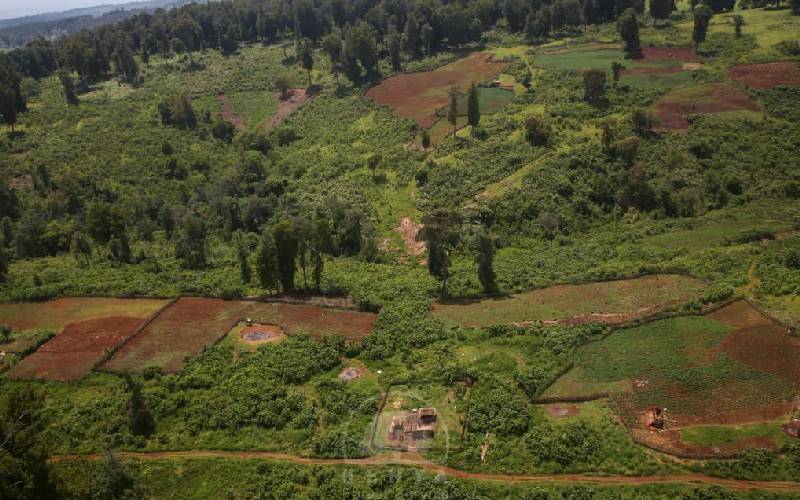×
The Standard e-Paper
Fearless, Trusted News

An aerial view of Sossio Forest. [Courtesy]
More than 200 families have been evicted from Sosio forest in Trans Nzoia County as the government steps up efforts to reclaim encroached forest land.